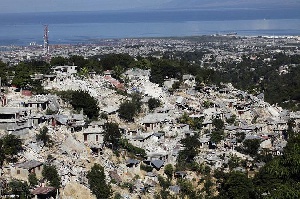Accra, March 21, GNA - Mr Robert Joseph Mettle-Nunoo, Deputy Health Minister says Ghana lacks the capacity to provide emergency health care services to manage consequences of disasters and huge disease epidemic situations.
He said currently, the various emergency health care systems in the country were saddled with numerous challenges such as lack of adequate ambulances, trained personnel, poor facilities and inadequate equipment including consumables leading to low performances and inadequacies in emergency health care delivery. He also mentioned inadequate funding for treatment and non-availability of back-up facilities as some of the major challenges.
Mr Mettle-Nunoo who was addressing health partners at a seminar on Mobile Clinics and Hospital Ambulance and Emergency Care in Accra on Monday, called for urgent action, collaboration and support from all stakeholders to help bridge the huge gaps which currently existed within the emergency health care delivery system in Ghana. The seminar was to engage stakeholders in accessing the level of understanding of emergency health care delivery from the country's perspective and also ascertain its level of readiness for disaster situations.
Mr Mettle-Nunoo indicated that currently government was focusing on improving the National Ambulance Service (NAS) to make it more efficient and reliable.
He also mentioned critical partners in emergency health care delivery such as the Ghana Red Cross Society, National Disaster Management Organisation, Ghana Fire Service, the Ghana Police Service, the Ghana Health Service and the Ghana Private Road Transport Union (GPRTU) who also needed both financial and technical assistance to play their respective roles.
The Deputy Health Minister asked that the country properly position itself in readiness to handle any form of emergency or disaster especially in the wake of its current position as an oil and gas producing country.
He said with the current influx of investors into the country and a prospective boom in the oil and gas sector, it was important to intensify training in First Aid at all levels, particularly with commercial drivers, who had also played key roles in transporting both accident and disaster victims to health facilities.
He indicated that the Ministry of Health had also instituted an on-going training programme for health professionals and hospital staffs to expand their knowledge and attitudes in emergency care delivery.
"We hope to develop protocols and guidelines to enhance the emergency care systems in the country", he said.
Dr Samuel Kaba Akoriyea, Clinical Auditor of the NAS, stressed the need for an effective control room for managing emergencies, saying the three major hospitals namely the 37 Military, Korle-Bu and the Okomfo Anokye Teaching Hospitals could not boast of a well resourced control rooms for managing emergencies. He underscored the importance of mobile emergency health services in the saving of lives in communities.
A team from Norinco, a Chinese company specialised in the construction of Mobile Clinics and Field Hospitals, said Ghana could improve its emergency care delivery under such facility.
The team which presented a paper to explain the effectiveness of the Mobile Clinics and Field Hospitals facility, said apart from being easy and cheaper to construct, it was rapid in improving local medical service levels and had improved adoptability to its environment and therefore capable of meeting the needs of the remote areas. The team had already submitted a proposal to the MOH and would further discuss benefits and the mode of operation of the facility with stakeholders during a working session.
General News of Monday, 21 March 2011
Source: GNA













